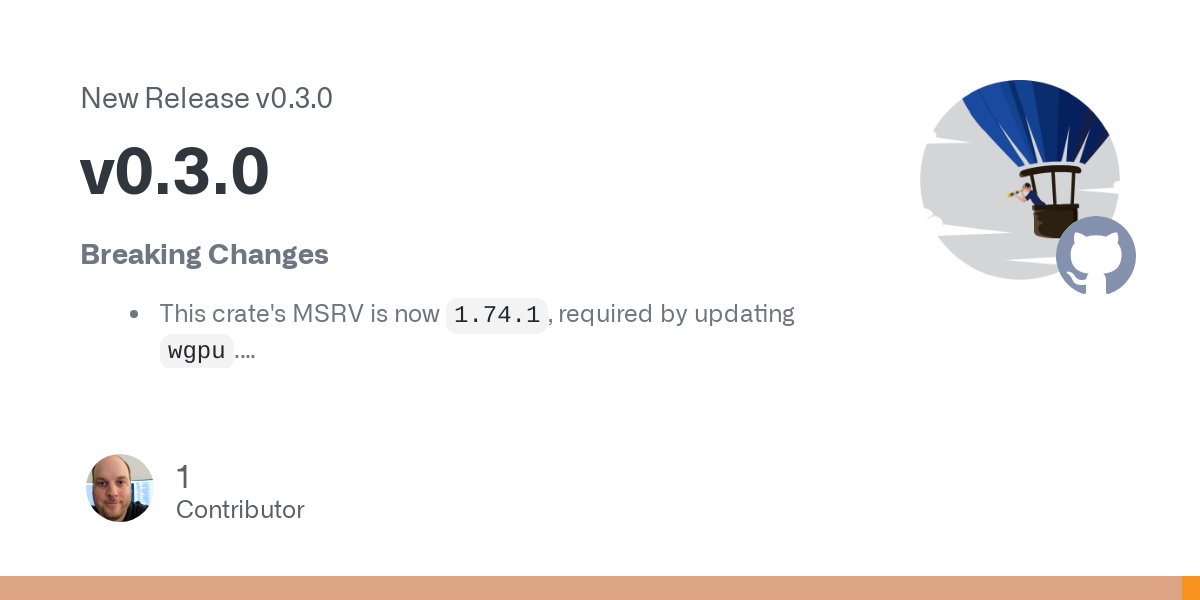I specifically mentioned HTTP/2 because it should have been easy for everyone to both test and find the relevant info.
But anyway, here is a short explanation, and the curl-library thread where the issue was first encountered.
You should also find plenty of blog posts where "unexplainable delay"/"unexplainable slowness"/"something is stuck" is in the premise, and then after a lot of story development and "suspense", the big reveal comes that it was Nagle's fault.
As with many things TCP. A technique that may have been useful once, ends up proving to be counterproductive when used with modern protocols, workflows, and networks.
They don't even run Android TV. They run a modified (normal) Android. This is well known, but the article also mentions it.
You clearly have no idea what ping-pong protocol means.
I already mentioned why! It's common pitfall.
For example, try a large HTTP/2 transfer over a socket where TCP_NODELAY is not set (or rather, explicitly unset), and see how the transfer rate would be limited because of it.
A reminder that TCP_NODELAY should be set by default, and you should remember to set it if it's not.
Many protocols end up being ping-pong ones. This includes HTTP/2 for example.
..and that's how you drive up metrics.
Never set foot in AU.
I was under the impression that Tasmania doesn't get that cold.
Also, apparently some would rather describe Perth as Mediterranean-SouthAfrican, rather than Mediterranean-Californian 😉
Gross!
Unprofessional.
This is why no one takes Rust seriously.
but futures only execute when polled.
The most interesting part here is the polling only has to take place on the scope itself. That was actually what I wanted to check, but got distracted because all spawns are awaited in the scope in moro's README example.
async fn slp() {
tokio::time::sleep(std::time::Duration::from_millis(1)).await
}
async fn _main() {
let result_fut = moro::async_scope!(|scope| {
dbg!("d1");
scope.spawn(async {
dbg!("f1a");
slp().await;
slp().await;
slp().await;
dbg!("f1b");
});
dbg!("d2"); // 11
scope.spawn(async {
dbg!("f2a");
slp().await;
slp().await;
dbg!("f2b");
});
dbg!("d3"); // 14
scope.spawn(async {
dbg!("f3a");
slp().await;
dbg!("f3b");
});
dbg!("d4");
async { dbg!("b1"); } // never executes
});
slp().await;
dbg!("o1");
let _ = result_fut.await;
}
fn main() {
let rt = tokio::runtime::Builder::new_multi_thread()
.enable_all()
.build()
.unwrap();
rt.block_on(_main())
}
[src/main.rs:32:5] "o1" = "o1"
[src/main.rs:7:9] "d1" = "d1"
[src/main.rs:15:9] "d2" = "d2"
[src/main.rs:22:9] "d3" = "d3"
[src/main.rs:28:9] "d4" = "d4"
[src/main.rs:9:13] "f1a" = "f1a"
[src/main.rs:17:13] "f2a" = "f2a"
[src/main.rs:24:13] "f3a" = "f3a"
[src/main.rs:26:13] "f3b" = "f3b"
[src/main.rs:20:13] "f2b" = "f2b"
[src/main.rs:13:13] "f1b" = "f1b"
The non-awaited jobs are run concurrently as the moro docs say. But what if we immediately await f2?
[src/main.rs:32:5] "o1" = "o1"
[src/main.rs:7:9] "d1" = "d1"
[src/main.rs:15:9] "d2" = "d2"
[src/main.rs:9:13] "f1a" = "f1a"
[src/main.rs:17:13] "f2a" = "f2a"
[src/main.rs:20:13] "f2b" = "f2b"
[src/main.rs:22:9] "d3" = "d3"
[src/main.rs:28:9] "d4" = "d4"
[src/main.rs:24:13] "f3a" = "f3a"
[src/main.rs:13:13] "f1b" = "f1b"
[src/main.rs:26:13] "f3b" = "f3b"
f1 and f2 are run concurrently, f3 is run after f2 finishes, but doesn't have to wait for f1 to finish, which is maybe obvious, but... (see below).
So two things here:
- Re-using the spawn terminology here irks me for some reason. I don't know what would be better though. Would
defer_to_scope()be confusing if the job is awaited in the scope? - Even if assumed obvious, a note about execution order when there is a mix of awaited and non-awaited jobs is worth adding to the documentation IMHO.
I skimmed the latter parts of this post since I felt like I read it all before, but I think moro is new to me. I was intrigued to find out how scoped span exactly behaves.
async fn slp() {
tokio::time::sleep(std::time::Duration::from_millis(1)).await
}
async fn _main() {
let value = 22;
let result_fut = moro::async_scope!(|scope| {
dbg!(); // line 8
let future1 = scope.spawn(async {
slp().await;
dbg!(); // line 11
let future2 = scope.spawn(async {
slp().await;
dbg!(); // line 14
value // access stack values that outlive scope
});
slp().await;
dbg!(); // line 18
let v = future2.await * 2;
v
});
slp().await;
dbg!(); // line 25
let v = future1.await * 2;
slp().await;
dbg!(); // line 28
v
});
slp().await;
dbg!(); // line 32
let result = result_fut.await;
eprintln!("{result}"); // prints 88
}
fn main() {
// same output with `new_current_thread()` of course
let rt = tokio::runtime::Builder::new_multi_thread()
.enable_all()
.build()
.unwrap();
rt.block_on(_main())
}
This prints:
[src/main.rs:32:5]
[src/main.rs:8:9]
[src/main.rs:25:9]
[src/main.rs:11:13]
[src/main.rs:18:13]
[src/main.rs:14:17]
[src/main.rs:28:9]
88
So scoped spawn doesn't really spawn tasks as one might mistakenly think!
Because non-open ones are not available, even for a price. Unless you buy something bigger than the "standard" itself of course, like a company that is responsible for it or having access to it.
There is also the process of standardization itself, with committees, working groups, public proposals, ..etc involved.
Anyway, we can't backtrack on calling ISO standards and their likes "open" on the global level, hence my suggestion to use more precise language (“publicly available and sharable”) when talking about truly open standards.
The term open-standard does not cut it. People should start using "publicly available and sharable" instead (maybe there is a better name for it).
ISO standards for example are technically "open". But how relevant is that to a curious individual developer when anything you need to implement would require access to multiple "open" standards, each coming with a (monetary) price, with some extra shenanigans [archived] on top.
IETF standards however are actually truly open, as in publicly available and sharable.
It implies that the value of their policy work is significantly below...
It's always safe to assume that value to be negative unless proven otherwise actually.
The LARPing levels in moronix comments are higher than usual, but the comedic value is still not lost.
Monthly Reminder: High or low, all Linux usage stats are fake.
I think your second link isn’t what you intended?
You scared me for a moment there. I don't know why you thought that.
Needless to say, even with the first example, metavar expressions are not strictly needed here, as using a second pattern and recursing expansions would work.
But I wanted to showcase the power of ${ignore}, as it can be cleaner and/or more powerful in some cases where extra patterns and recursing expansions can get messy and hard to track.
Is this crazy?
A general repeat macro that works on stable Rust would work too of course.
BTW, the snippet I pointed to, and the whole match block, is not incoherent. It's useless.
First of all, unsafe famously doesn't disable the borrow checker, which is something any Rustacean would know, so your intro is a bit weird in that regard.
And if you neither like the borrow checker, nor like unsafe rust as is, then why are you forcing yourself to use Rust at all. If you're bored with C++, there are other of languages out there, a couple of which are even primarily developed by game developers, for game developers.
The fact that you found a pattern that can be alternatively titled "A Generic Method For Introducing Heisenbugs In Rust", and you are somehow excited about it, indicates that you probably should stop this endeavor.
Generally speaking, I think the Rust community would benefit from making an announcement a long the lines of "If you're a game developer, then we strongly advise you to become a Rustacean outside the field of game development first, before considering doing game development in Rust".
Alright. Explain this snippet and what you think it achieves:
tokio::task::spawn_blocking(move || -> Result { Ok(walkdir) })
System76 computers empower the world's curious and capable makers of tomorrow
Breaking Changes This crate's MSRV is now 1.74.1, required by updating wgpu. wgpu has been updated to 0.20. winit has been updated to 0.30. All context types no longer accept a 'window life...

Release announcement with the highlights: https://slint.dev/blog/slint-1.6-released Detailed list of changes: ChangeLog
